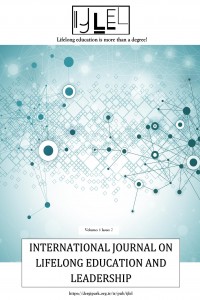Abstract
References
- Barbot, A. (2017). Problems and questions: elucidation and relevance for research and teaching (Chapter 18), from: Lopes, J. B; P., Cravino J; Cruz, E.; Barbot, A.. 2017. Teaching Science: Contributions of Research for Planning, Practice and Professional Development. ed. 1, ISBN: 978-1-53612-381-4. Nova Iorque: Nova Science.
- Costa, F. A.; Rodriguez, C.L.; Cruz, E.; Fradão, S. (2012). “Repensar as TIC na educação: o professor como agente transformador. 1 ed. Lisboa: Santillana.
- Hill, M. M. & Hill, A. (1998). A Construção de um Questionário. Fundação para a Ciência e a Tecnologia.
- Lee, I. (2014). “CSTA Computational Thinking Task Force”.
- Martins, I. (2002). Problemas e perspectivas sobre a integração CTS no sistema educativo português. Revista Eletrónica de Enseñanza de las Ciencias, 28-39.
- Meirinhos, M. & Osório, A. (2010). O estudo de caso como estratégia de investigação em educação. EDUSER: Vol 2 (2). Instituto Politécnico de Bragança.
- Mesquita-Pires, C. (2010). The action research to support the professional development of teachers. EDUSER: Vol. 2 (2). Instituto Politécnico de Bragança.
- Milligan, S. K., Luo, R., Hassim, E., & Johnston, J. (2020). Future-proofing students: What they need to know and how to assess and credential them. Melbourne, Australia: Melbourne Graduate School of Education, the University of Melbourne: Melbourne.
- Quadros Flores, Paula, Escola, Joaquim, & Peres, Américo (2009). A tecnologia ao Serviço da Educação: práticas com TIC no 1º Ciclo do ensino Básico. In VI Conferência Internacional de TIC na Educação – Challenges (pp. 715-726). Universidade do Minho, Braga.
- Vieira, R., Tenreiro-Vieira, C. (2016). Educação em Ciências e Matemática com Orientação CTS Promotora do Pensamento Crítico.
- Wing, J. (2006). “Computational Thinking”. Communications of the ACM, vol. 49, no. 3, pp. 33–35.
- Wing, J. (2008). “Computational thinking and thinking about computing”. Philosophical Transactions of The Royal Society A.
Science education and computational thinking – adapting two projects from classroom learning to emergency distance learning
Abstract
The sudden need for an adaptation of two science projects based on the changes that the COVID-19
pandemic brought to the education system in Portugal, transitioning from classroom learning to distance
learning, led to a reorganization within the structure of these projects in order to implement them,
maintaining the same objectives.
Both projects have the main goal to develop computational thinking, with the first project having
simultaneously the aim to also develop an environmental awareness through an initiation to
programming by way of implementing challenges regarding the same topic, within 1st grade pupils,
namely recycling and reducing single use waste. The second project constitutes the assembly and
implementation of a weather station, based on the microprocessor Micro:bit, at the service of the science
curricula contents within 5th grade students, with regard to abiotic factors and its influence on animals
and plants.
References
- Barbot, A. (2017). Problems and questions: elucidation and relevance for research and teaching (Chapter 18), from: Lopes, J. B; P., Cravino J; Cruz, E.; Barbot, A.. 2017. Teaching Science: Contributions of Research for Planning, Practice and Professional Development. ed. 1, ISBN: 978-1-53612-381-4. Nova Iorque: Nova Science.
- Costa, F. A.; Rodriguez, C.L.; Cruz, E.; Fradão, S. (2012). “Repensar as TIC na educação: o professor como agente transformador. 1 ed. Lisboa: Santillana.
- Hill, M. M. & Hill, A. (1998). A Construção de um Questionário. Fundação para a Ciência e a Tecnologia.
- Lee, I. (2014). “CSTA Computational Thinking Task Force”.
- Martins, I. (2002). Problemas e perspectivas sobre a integração CTS no sistema educativo português. Revista Eletrónica de Enseñanza de las Ciencias, 28-39.
- Meirinhos, M. & Osório, A. (2010). O estudo de caso como estratégia de investigação em educação. EDUSER: Vol 2 (2). Instituto Politécnico de Bragança.
- Mesquita-Pires, C. (2010). The action research to support the professional development of teachers. EDUSER: Vol. 2 (2). Instituto Politécnico de Bragança.
- Milligan, S. K., Luo, R., Hassim, E., & Johnston, J. (2020). Future-proofing students: What they need to know and how to assess and credential them. Melbourne, Australia: Melbourne Graduate School of Education, the University of Melbourne: Melbourne.
- Quadros Flores, Paula, Escola, Joaquim, & Peres, Américo (2009). A tecnologia ao Serviço da Educação: práticas com TIC no 1º Ciclo do ensino Básico. In VI Conferência Internacional de TIC na Educação – Challenges (pp. 715-726). Universidade do Minho, Braga.
- Vieira, R., Tenreiro-Vieira, C. (2016). Educação em Ciências e Matemática com Orientação CTS Promotora do Pensamento Crítico.
- Wing, J. (2006). “Computational Thinking”. Communications of the ACM, vol. 49, no. 3, pp. 33–35.
- Wing, J. (2008). “Computational thinking and thinking about computing”. Philosophical Transactions of The Royal Society A.
Details
| Primary Language | English |
|---|---|
| Subjects | Studies on Education |
| Journal Section | Research Article |
| Authors | |
| Publication Date | December 31, 2020 |
| Submission Date | October 1, 2020 |
| Published in Issue | Year 2020 Volume: 6 Issue: 2 |


